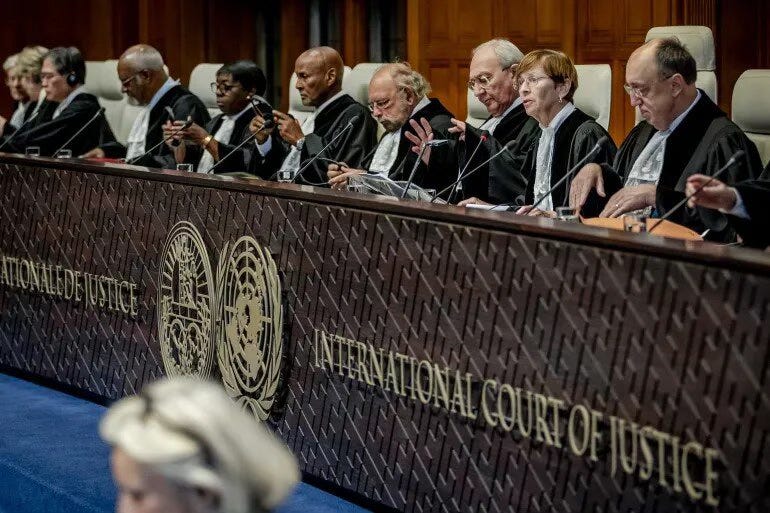🏛️ The International Court of Justice Just Rejected EVERY SINGLE LIE Israel Told to Them
I have embedded their 150 page opinion below, but went ahead and summarized it for you so that you can understand it in plain English.
Fact punch: Today the International Court of Justice (the U.N.’s world court) issued a sweeping Advisory Opinion detailing Israel’s legal obligations as an occupying power and as a U.N. Member State, with specific findings on relief, UNRWA, humanitarian access, and the prohibition on starvation.
Why it matters now: The ICJ cannot physically stop bombs —…



